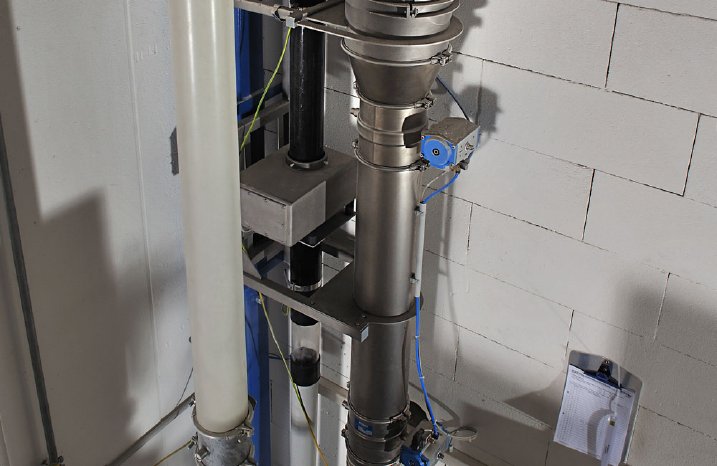In one of the milling plants, with production capacity of more than 12,000 cwt. and storage capacities of just above 1 MM bu. various wheat varieties are processed.
Food safetywithoutdustformation and lossofgood material
Pneumatic conveying is common within the milling industry to move large volumes of products. This firm was looking for a metal detection solution to provide enhancements to their food safety initiatives (GFSI) within the challenge of pneumatically conveying the finished product to bulk carriers. T hiswas no easy task considering that the conveying pipes are operated with a pressure of 1.7 bars and a linear spe ed up to 4000 FPM.
Previous locations for installation of detection systems have been in front of, or at the exit of, these pneumatic lines. Previous systems were cumbersome, create dust with a lot of product waste, therefore installation at this part of the process was often deemed too difficult. This left a gap in the food safety coverage of the flour mill.
Metaldetector GF4000 forthepressureconveyinglinewith high conveyingspeed
After evaluation of several metal detectors from different manufacturers, our reference customer decided to go for the GF 4000 from Sesotec. This system rose to the top of the selection list because it detects and automatically rejects metal from within the pneumatic line.
Automaticseparationofmetals in thepneumaticline
When testing with test bodies, the device could convince to 100 percent, without generating any false rejects. By installing the GF4000, the company could close a gap in production security. They are also impressed with the robust construction of the GF 4000, derived from German technology with engineering suitable for the demands of North American customers.


